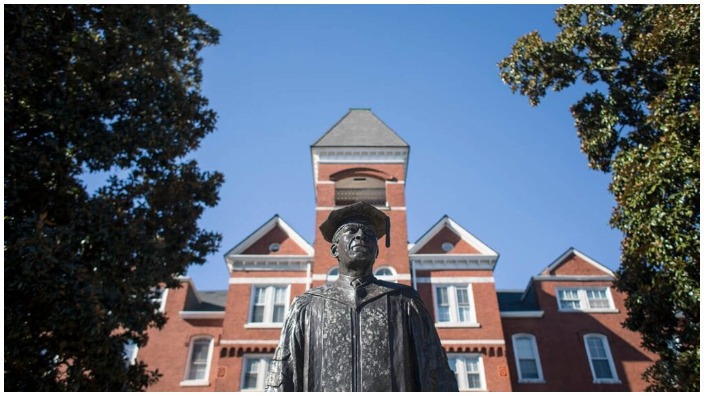We bring news that matters to your inbox, to help you stay informed and entertained.
Terms of Use and Privacy Policy Agreement
WELCOME TO THE FAMILY! Please check your email for confirmation from us.
The legislation would create a program within the SBA to allow higher education institutions that serve minorities to apply for grants.
A Georgia representative is determined to help Black businesses succeed.
Rep. Nikema Williams, D-Ga., introduced a bipartisan bill last month that would create a federal grant program to assist new entrepreneurs from historically Black colleges and universities and other institutions geared toward minorities, according to The Atlanta Journal-Constitution.
The bill, introduced as the Minority Entrepreneurship Grant Program Act of 2023, would create a program within the Small Business Administration (SBA) to allow higher education institutions that serve minorities to apply for grants starting at $250,000 for student entrepreneurs, the AJC reported.
“[Atlanta is] at the bottom of the list for the racial wealth gap, and so now, as someone in a position of power, I have the opportunity to put policies in place that can actually change that,” Williams told the AJC. The bill is co-sponsored by Reps. Alma Adams, D-N.C., Dwight Evans, D-Pa., Brian Fitzpatrick, R-Pa., and Norma Torres, D-Calif.
Black entrepreneurship has increased steadily over the past few years. According to 2020 U.S. Census data, there were 140,918 businesses with majority Black ownership. That’s a 14% increase from 2017. These businesses bring in an estimated $141.1 billion in revenue, which is an 11% increase from 2017. This does not account for all businesses that aren’t classified by race or smaller ones with little revenue.
With that growth has come scrutiny. Some minority-owned businesses and programs aimed at helping minorities are being targeted with lawsuits and other efforts to take away their funding. Fearless Fund, an Atlanta-based venture capital firm, was sued this year by a group that also worked to overturn affirmative action.
The American Alliance for Equal Rights (AAER) alleged that the Black-led firm discriminated against non-Black women. The SBA was also sued for its minority small business development program.
Despite the lawsuits and targeting of Black-owned businesses, Williams isn’t letting that slow her down.
“I can’t base what I’m doing to serve my constituents on what might happen in the future,” she told the AJC. “What I know is the need today is that Black and brown businesses need access to capital.”
Never miss a beat: Get our daily stories straight to your inbox with theGrio’s newsletter.

